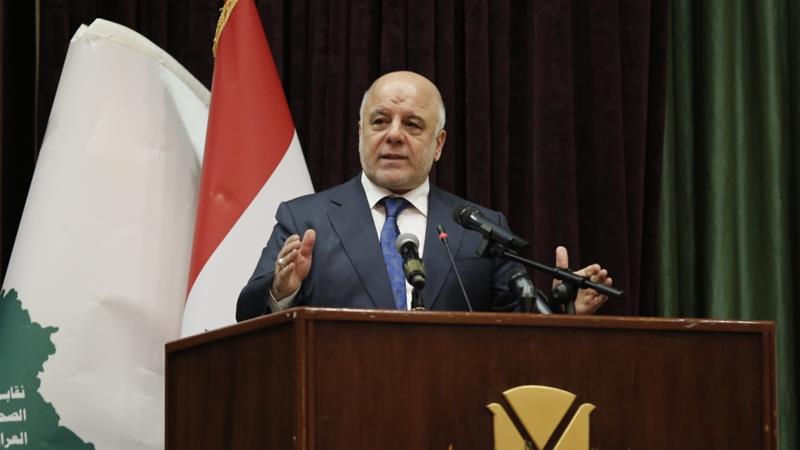Shia leader Muqtada al-Sadr's Sairoon coalition beat all expectations on May 12 to win 54 out of 328 seats in parliament, after successfully launching an anti-corruption campaign in the impoverished, but oil-rich country.
Prime Minister Haider al-Abadi told a news conference on Tuesday that criminal charges might be brought against some people, after he blamed electronic vote counting devices used by the IHEC, which he said hadn't been used without prior inspection for errors.
Abadi's al-Nasr Alliance came third in the poll with only 42 seats.
Abadi added that a report presented to the government recommended a partial manual recount of the vote and the cancellation of results from overseas and displaced voters.
The commission annulled votes cast at 1,021 of the country's 53,000 ballot boxes last Wednesday, and launched a probe "with a view to holding violators accountable."
"The committee has revealed dangerous things, honestly. Yes there may have been some violations by candidates but the election commission bears the largest share of the responsibility," Abadi said.
Low turnout
Only 285,000 of Iraq's three million internally displaced had registered to vote in the first election since the defeat of the armed group - the Islamic State of Iraq and the Levant (ISIL, also known as ISIS).
Abadi's stance raises the prospect of further uncertainty in Iraq at a time when political blocs were starting the complicated process of forming a new government, watched closely by Baghdad's Western allies.
Sadr has fiercely opposed foreign interference in Iraq.
His victory was seen as a rebuke to a political elite that some voters blame for widespread corruption and dysfunctional governance in the country.
His bloc has promised to help the poor and build schools and hospitals in Iraq, which was battered in the war to defeat ISIL and has suffered economically as a result of low oil prices.
Source: www.aljazeera.com/news/2018/06/iraq-bans-election-commission-members-travelling-180605182949276.html


 RSS Feed
RSS Feed